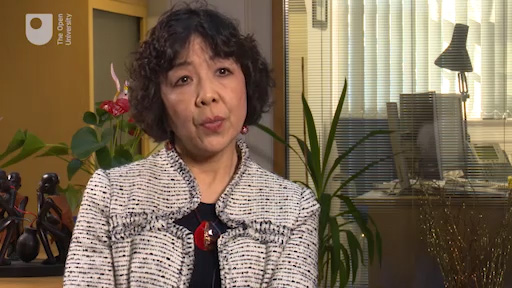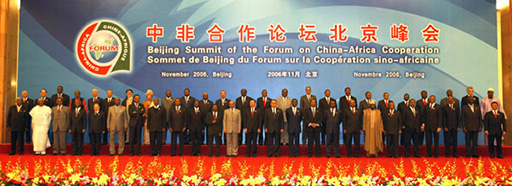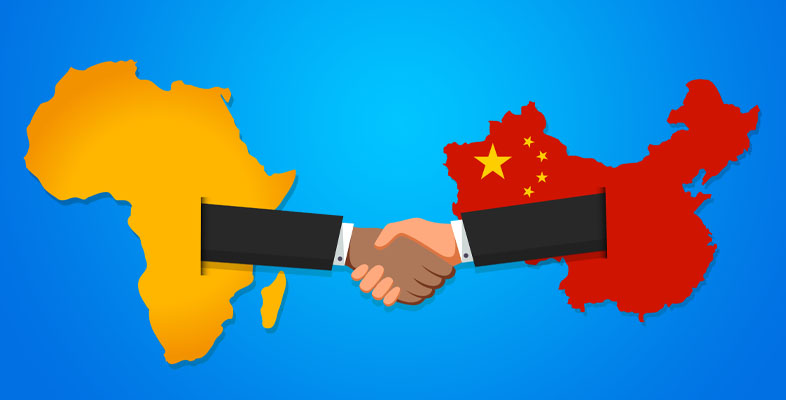2 An increasing need for greater levels of resources
China’s engagement in Africa began to ramp up shortly into the new millennium. In the following video, Dr Janet Liao introduces the reasons for this by explaining changes in oil demand.

Transcript: Video 2 Changes in oil demand
So, as the graphs showed, China’s economic growth had been high throughout the 1990s and from 1993 the country was forced to import oil for the first time, constructing a pipeline from Kazakhstan, importing from Russia and South East Asian countries such as Burma. This turn of events stimulated the development of various policies to encourage both outward investment and international trade. China’s search for resources took them across the globe – Australia, Latin America, Canada, the Middle East, SE Asia and Africa.
In the context of Africa, the main political vehicle for strengthening ties between China and Africa was the Forum on China–Africa Cooperation, or FOCAC. FOCAC began in 2000 but became notably visible at a high-profile meeting in Beijing in 2006 attended by many African leaders, and which signalled a shift in the global world order. For centuries it had been Europe that had largely intervened in Africa while the ‘American Century’ had seen a waning of Europe’s influence and the growing role of organisations like the US-based World Bank and IMF in African development. But FOCAC showed that for Africa ‘looking eastwards’ could be both politically and economically advantageous.

While FOCAC is a multilateral organisation, much of the dealings between China and Africa are brokered between the Chinese and a specific African country; that is, they are bilateral deals. The discourse of these relationships is about ‘win-win’ cooperation and new ‘South-South’ development relations. The Chinese have been keen to play on the legacy of Zheng He and the Tanzam Railway, declaring that their interests in Africa are only virtuous and decidedly not imperialist.
The extract below is from Chinese President Xi Jinping’s speech to the 2018 FOCAC meeting, which was also held in Beijing. The language is brimming with phrases like ‘friendship’, ‘cooperation’, ‘equality’, ‘sincerity’ and ‘peace’. The ‘five no’ approach formula dates back to the 1960s and is based on respect for African sovereignty, signalled by the idea of ‘non-interference’.
Xi: China, Africa embark on distinctive path of win-win cooperation
3 September 2018
Chinese President Xi Jinping said… that China and Africa have embarked on a distinctive path of win-win cooperation.
Xi made the statement in a keynote speech delivered at the opening ceremony of the 2018 Beijing Summit of the Forum on China-Africa Cooperation.
Africa’s development has great potential and the continent is full of hope. China-Africa friendship and cooperation have broad vistas, and China and Africa can forge an even stronger comprehensive strategic and cooperative partnership, Xi said.
China values sincerity, friendship and equality in pursuing cooperation. The over 1.3 billion Chinese people have been with the over 1.2 billion African people in pursuing a shared future, he said.
The country follows a ‘five-no’ approach in its relations with Africa: no interference in African countries’ pursuit of development paths that fit their national conditions; no interference in African countries’ internal affairs; no imposition of China’s will on African countries; no attachment of political strings to assistance to Africa; and no seeking of selfish political gains in investment and financing cooperation with Africa, Xi said. ‘No one could undermine the great unity between the Chinese people and the African people. … No one could hold back the Chinese people or the African people as we march toward rejuvenation.’ …
China takes an open and inclusive approach to cooperation. China stands ready to work with other international partners to support Africa in pursuing peace and development, Xi said. ‘No one could stand in the way or obstruct international efforts to support Africa’s development.’
